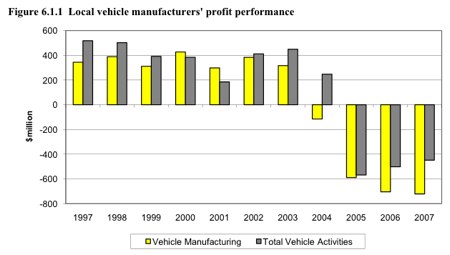The results of the Australian Governments first test of internet censorship have been released today (pdf) and The Australian, as usual, runs the Government spin:
THE federal Government will embark on the next step of its internet filtering strategy after initial trials proved successful, Communications Minister Stephen Conroy said….
In the past, one of the main drawbacks of the technology has been web performance degradation but the government now says the trial showed that ISP-level filtering technology had significantly improved compared with technology used in a 2005 trial.
“It is very encouraging to see that the industry has made significant progress with ISP filtering products and we are heartened that many of the products tested are commercially available, with many of them already deployed overseas,” Senator Conroy said in a statement….
Senator Conroy said the tests proved that the web filtering technology could be expanded to a wider base.
A side note: I always love it how some mainstream journalists here preach that bloggers don’t research a story properly then run a Government press release without actually reading the paper or providing critical analysis on it. But I digress.
The ACMA paper looked only at the technology in use and did not consider the cost of any filtering technology, a critical consideration when implementing broadscale internet censorship in Australia.
Speed
The paper finds that filters in place, but not actually filtering content (bizarre test, I know, but the results are telling) resulted in the following degredation of service (by which you would presume meant reduction in data, hence speed):
below 30 per cent for all products; and
below 10 per cent for five of the six products.
In short form: even when not filtering content, the filters for all products saw a decrease in internet speeds of up to 30%. For 5 products, the speed reduction of up to 10%.
When actively filtering content, these figures change again
2% for one product;
in the range 22 to 30 per cent for three products; and
in excess of 75 per cent for two products.
Translated: one product only caused a 2% drop, 3 products caused speed reductions in the vacinity of 22-30%, two products a staggering greater than 75%. Notably the product that causes the least speed reduction is not named nor related to the success in filtering results (which we are about to get to), so it may have a lower impact on speed, but it may have higher rates of failure in actually censoring content.
Effectiveness of Blocking
ACMA found the following success rates in filtering nominated content:
above 0.88 for all products; and
0.94 or above for three products.
88% accuracy on all products, half with 94% or above.
How those figures relate to the next set I’m not sure, because this set indicates the failure to block nominated content
below 0.08 for all products; and
below 0.03 for four products.
Maybe it’s buried further into the paper, but if the base is 88% yes, and the fail rate worst figure is 8%, where’s the missing 4%?
Overblocking may be a new term to most, but it means censoring content that isn’t meant to be censored. The results
The previous trial reported a difference in the level of overblocking (that is, the proportion of content that was blocked that should not have been blocked) between the most and the least accurate filter products in the range six to 62 per cent. The corresponding levels measured in the current trial varied across a significantly smaller range?¢‚Ǩ‚Äùbetween one and eight per cent, with most falling under three
per cent. The median overblocking rate was significantly improved from the previous trial.
Yes, somewhere between 1-8% of perfectly legal sites were blocked in the trials. But that’s ok, because it use to be 6-62%.
Here in lies the problem with censorship: once it starts, it rarely stops, and in this case, innocent content providers and online retailers may find themselves blocked for no other reason that the technical failure of the Government’s plan.
Conclusion
Communications Minister Stephen Conroy is hell bent on selling a rabid, three legeed dog no matter what the cost to ordinary Australian’s.
22-30% reductions in internet access speeds are not acceptable at a time where Australia lags behind most of the world in Internet access connection speeds. Consider also that our distance from the rest of the world delivers us slower access times anyway, where as my 14mbps connection in Melbourne does not deliver the same results as the same connection in the United States, simply due to the time data takes to travel across the world (or lag time).
That censorship will no longer deliver 75% drop in speed doesn’t make 22-30% acceptable. Any cut in internet speeds places Australia at a further disadvantage in the information age.
Success rates of 90% in filtering trials are irrelevant on two fronts. First, the testing considered a list of sites to be blocked, but as anyone sitting behind a corporate firewall knows, or even in China for that matter, it’s extremely easy to bypass content filtering. Those that want the content the Government is so keen to censor will still get at it. Secondly, it is NOT acceptable that in a democratic, free country that the Government deems it acceptable to implement technologies that censors any amount of legal content, let alone up to 8% of it. Who are these future victims of accidental Australian Government censorship? will they be compensated? Would we accept the Government accidentally taxing millions of Australians, or denying them social services? Imagine being removed from Government databases, to be a non-entity in your own country. The outrage even in a handful of cases would be loud and long, and yet our Government is planning to accidentally block Australians doing their business online from being seen by other Australians.
Censorship is always flawed and always has unintended victims. The victims of Senator Conroy’s bloody mindedness will be every internet user in Australia, through increased costs, lower speeds, and for some of them, to be denied their legal rights in what is suppose to be a free country.












